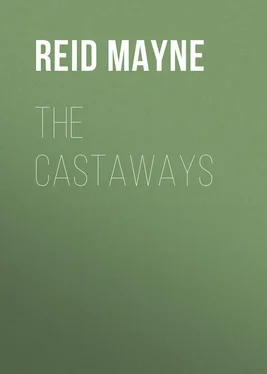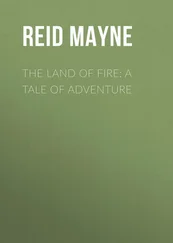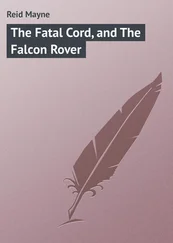Mayne Reid - The Castaways
Здесь есть возможность читать онлайн «Mayne Reid - The Castaways» — ознакомительный отрывок электронной книги совершенно бесплатно, а после прочтения отрывка купить полную версию. В некоторых случаях можно слушать аудио, скачать через торрент в формате fb2 и присутствует краткое содержание. Жанр: literature_19, foreign_antique, foreign_prose, на английском языке. Описание произведения, (предисловие) а так же отзывы посетителей доступны на портале библиотеки ЛибКат.
- Название:The Castaways
- Автор:
- Жанр:
- Год:неизвестен
- ISBN:нет данных
- Рейтинг книги:3 / 5. Голосов: 1
-
Избранное:Добавить в избранное
- Отзывы:
-
Ваша оценка:
- 60
- 1
- 2
- 3
- 4
- 5
The Castaways: краткое содержание, описание и аннотация
Предлагаем к чтению аннотацию, описание, краткое содержание или предисловие (зависит от того, что написал сам автор книги «The Castaways»). Если вы не нашли необходимую информацию о книге — напишите в комментариях, мы постараемся отыскать её.
The Castaways — читать онлайн ознакомительный отрывок
Ниже представлен текст книги, разбитый по страницам. Система сохранения места последней прочитанной страницы, позволяет с удобством читать онлайн бесплатно книгу «The Castaways», без необходимости каждый раз заново искать на чём Вы остановились. Поставьте закладку, и сможете в любой момент перейти на страницу, на которой закончили чтение.
Интервал:
Закладка:
Mayne Reid
The Castaways
Chapter One.
A Castaway Crew
A boat upon the open sea – no land in sight!
It is an open boat, the size and form showing it to be the pinnace of a merchant-ship.
It is a tropical sea, with a fiery sun overhead, slowly coursing through a sky of brilliant azure.
The boat has neither sail nor mast. There are oars, but no one is using them. They lie athwart the tholes, their blades dipping in the water, with no hand upon the grasp.
And yet the boat is not empty. Seven human forms are seen within it, – six of them living, and one dead.
Of the living, four are full-grown men; three of them white, the fourth of an umber-brown, or bistre colour. One of the white men is tall, dark and bearded, with features bespeaking him either a European or an American, though their somewhat elongated shape and classic regularity would lead to a belief that he is the latter, and in all probability a native of New York. And so he is.
The features of the white man sitting nearest to him are in strange contrast to his, as is also the colour of his hair and skin. The hair is of a carroty shade, while his complexion, originally reddish, through long exposure to a tropical sun exhibits a yellowish, freckled appearance. The countenance so marked is unmistakably of Milesian type. So it should be, as its owner is an Irishman.
The third white man, of thin, lank frame, with face almost beardless, pale cadaverous cheeks, and eyes sunken in their sockets, and there rolling wildly, is one of those nondescripts who may be English, Irish, Scotch, or American. His dress betokens him to be a seaman, a common sailor.
He of the brown complexion, with flat spreading nose, high cheek-bones, oblique eyes, and straight, raven black hair, is evidently a native of the East, a Malay.
The two other living figures in the boat are those of a boy and girl. They are white. They differ but little in size, and but a year or two in age, the girl being fourteen and the boy about sixteen. There is also a resemblance in their features. They are brother and sister.
The fourth white, who lies dead in the bottom of the boat, is also dressed in seaman’s clothes, and has evidently in his lifetime been a common sailor.
It is but a short time since the breath departed from his body; and judging by the appearance of the others, it may not be long before they will all follow him into another world. How weak and emaciated they appear, as if in the last stage of starvation! The boy and girl lie along the stern-sheets, with wasted arms, embracing each other. The tall man sits on one of the benches, gazing mechanically upon the corpse at his feet; while the other three also have their eyes upon it, though with very different expressions. That upon the face of the Irishman is of sadness, as if for the loss of an old shipmate; the Malay looks on with the impassive tranquillity peculiar to his race; while in the sunken orbs of the nondescript can be detected a look that speaks of a horrible craving – the craving of cannibalism.
The scene described, and the circumstances which have led to it, call for explanation. It is easily given. The tall dark-bearded man is Captain Robert Redwood, the skipper of an American merchant-vessel, for some time trading among the islands of the Indian Archipelago. The Irishman is his ship-carpenter, the Malay his pilot, while the others are two common sailors of his crew. The boy and girl are his children, who, having no mother or near relatives at home, have been brought along with him on his trading voyage to the Eastern Isles. The vessel passing from Manilla, in the Philippines, to the Dutch settlement of Macassar, in the island of Celebes, has been caught in a typhoon and swamped near the middle of the Celebes Sea; her crew have escaped in a boat – the pinnace – but saved from death by drowning only to find, most of them, the same watery grave after long-procrastinated suffering from thirst, from hunger, from all the agonies of starvation.
One after another have they succumbed, and been thrown overboard, until the survivors are only six in number. And these are but skeletons, each looking as if another day, or even another hour, might terminate his wretched existence.
It may seem strange that the youthful pair in the stern-sheets, still but tender children, and the girl more especially, should have withstood the terrible suffering beyond a period possible to many strong men, tough sailors every one of them. But it is not so strange after all, or rather after knowing that, in the struggle with starvation, youth always proves itself superior to age, and tender childhood will live on where manhood gives way to the weakness of inanition.
That Captain Redwood is himself one of the strongest of the survivors may be due partly to the fact of his having a higher organism than that of his ship-comrades. But, no doubt, he is also sustained by the presence of the two children, his affection for them and fear for their fate warding off despair, and so strengthening within him the principle of vitality.
If affection has aught to do with preserving life, it is strong enough in the Irishman to account also for the preservation of his; for although but the carpenter in Captain Redwood’s ship, he regards the captain with a feeling almost fraternal. He had been one of his oldest and steadiest hands, and long service has led to a fast friendship between him and his old skipper.
On the part of the Irishman, this feeling is extended to the youthful couple who recline, with clasped hands, along the sternmost seat of the pinnace.
As for the Malay, thirst and hunger have also made their marks upon him; but not as with those of Occidental race. It may be that his bronze skin does not show so plainly the pallor of suffering; but, at all events, he still looks lithe and life-like, supple and sinewy, as if he could yet take a spell at the oar, and keep alive as long as skin and bone held together. If all are destined to die in that open boat, he will certainly be the last. He with the hollow eyes looks as if he would be the first.
Down upon this wretched group, a picture of misery itself, shines the hot sun of the tropics; around it, far as eye could reach, extends the calm sea, glassed, and glancing back his lays, as though they were reflected from a sheet of liquid fire; beneath them gleams a second firmament through the pellucid water, a sky peopled with strange forms that are not birds: more like are they to dragons; for among them can be seen the horrid form of the devil-fish, and the still more hideous figure of the hammer-headed shark. And alone is that boat above them, seemingly suspended in the air, and only separated from these dreadful monsters by a few feet of clear water, through which they can dart with the speed of electricity. Alone, with no land in sight, no ship or sail, no other boat – nothing that can give them a hope.
All bright above, around, and beneath; but within their hearts only darkness and the dread of death!
Chapter Two.
The Hammer-Head
For some time the castaways had been seated in moody silence, now and then glancing at the corpse in the bottom of the boat, some of them no doubt thinking how long it might be before they themselves would occupy the same situation.
But now and then, also, their looks were turned upon one another, not hopefully, but with a mechanical effort of despair.
In one of these occasional glances, Captain Redwood noticed the unnatural glare in the eyes of the surviving sailor, as also did the Irishman. Simultaneously were both struck with it, and a significant look was exchanged between them.
For a period of over twenty hours this man had been behaving oddly; and they had conceived something more than a suspicion of his insanity. The death of the sailor lying at the bottom of the boat, now the ninth, had rendered him for a time more tranquil, and he sat quiet on his seat, with elbows resting on his knees, his cheeks held between the palms of his hands. But the wild stare in his eyes seemed to have become only more intensified as he kept them fixed upon the corpse of his comrade. It was a look worse than wild; it had in it the expression of craving .
Читать дальшеИнтервал:
Закладка:
Похожие книги на «The Castaways»
Представляем Вашему вниманию похожие книги на «The Castaways» списком для выбора. Мы отобрали схожую по названию и смыслу литературу в надежде предоставить читателям больше вариантов отыскать новые, интересные, ещё непрочитанные произведения.
Обсуждение, отзывы о книге «The Castaways» и просто собственные мнения читателей. Оставьте ваши комментарии, напишите, что Вы думаете о произведении, его смысле или главных героях. Укажите что конкретно понравилось, а что нет, и почему Вы так считаете.












